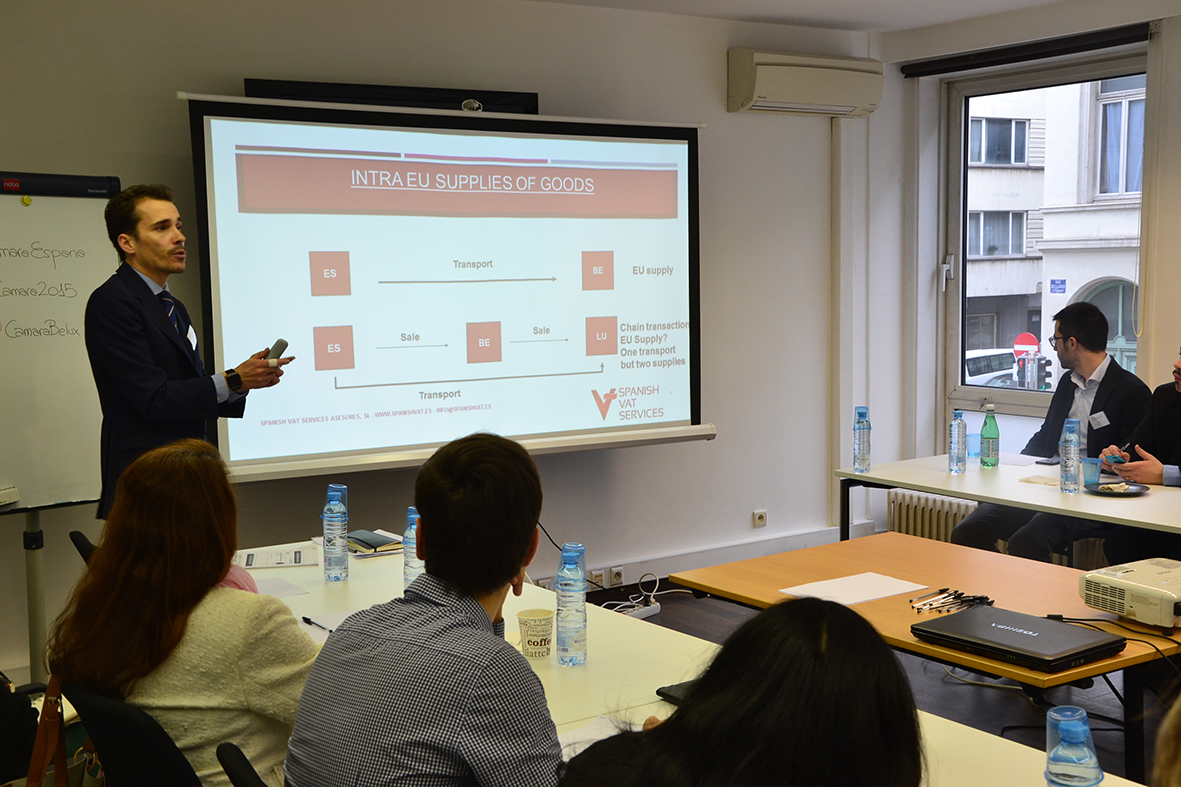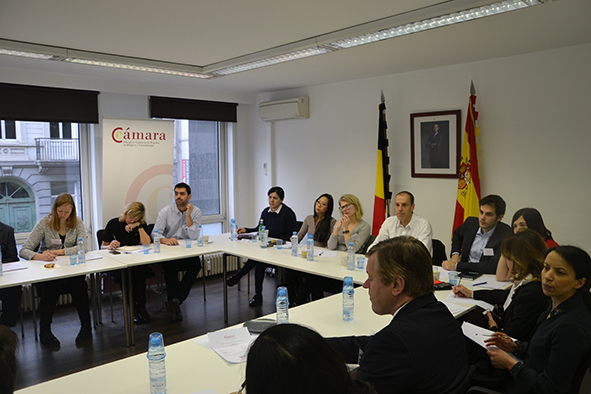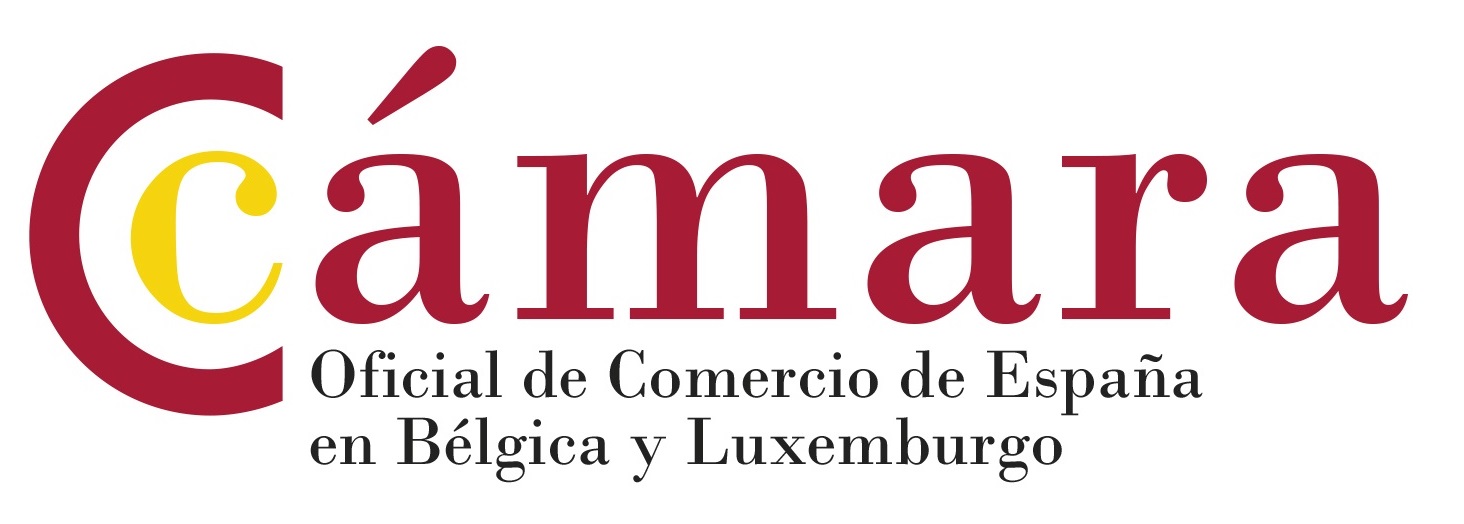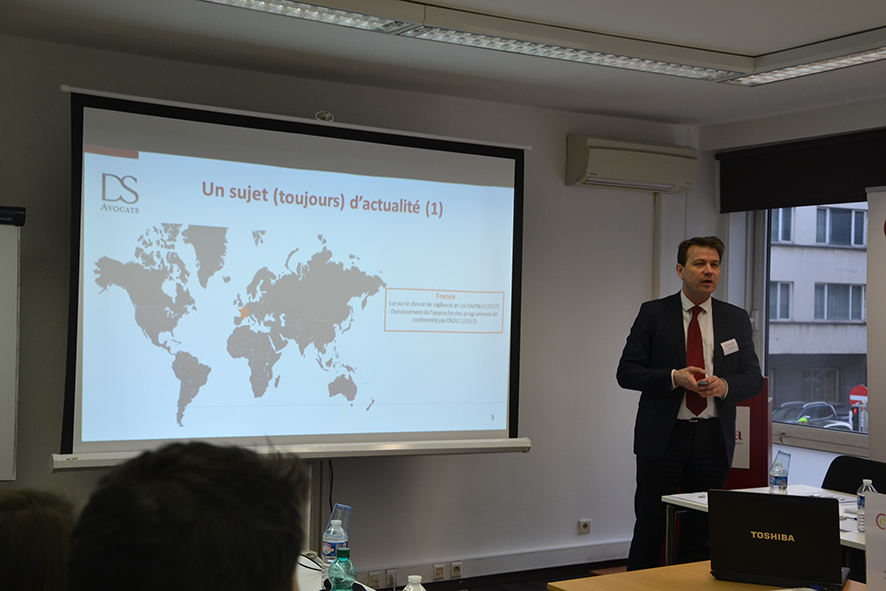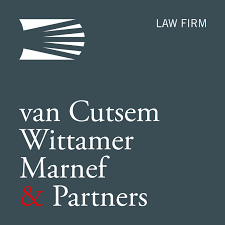Workshop in Spanish taxes for individuals living abroad
Last 12nd of April, the Official Spanish Chamber of Commerce in Belgium and Luxembourg organized, in collaboration with its member BLAW & TAX, a conference about the “Spanish Taxes for Individuals Living Abroad”. The event gathered representatives of different Spanish and Belgian companies, members of the Chamber, representatives of European Institutions and Spanish regional delegations.
The conference was run by Inmaculada Pineda, partner of BLAW & TAX, a firm specialized in international taxation and legal-tax consulting at national and international scope related to corporate aspects.
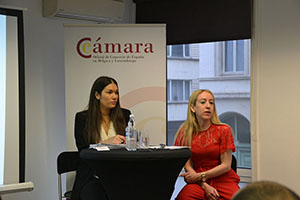 The conference focused on two main points: fiscal residency and its implications, regarding the taxation and fiscal benefits provided by the Spanish domestic legislation.
The conference focused on two main points: fiscal residency and its implications, regarding the taxation and fiscal benefits provided by the Spanish domestic legislation.
First, the speaker presented the alternative rules that determine that the tax residency is located in Spain. The right identification of the fiscal residency is fundamental when determining the tax obligations of the natural persons.
Thus, the Spanish regulation incorporates the criteria of residence, location of economic interests and the presumption of tax residency in case the spouse or the children are tax residents in Spain.
Inmaculada Pineda made a parenthesis to explain carefully the well-known model 720 which establishes the informative obligations on the assets located in the Spanish territory. This declaration must be about three blocks: the accounts in financial institutions, the accounts in financial assets in general and real right on real estate.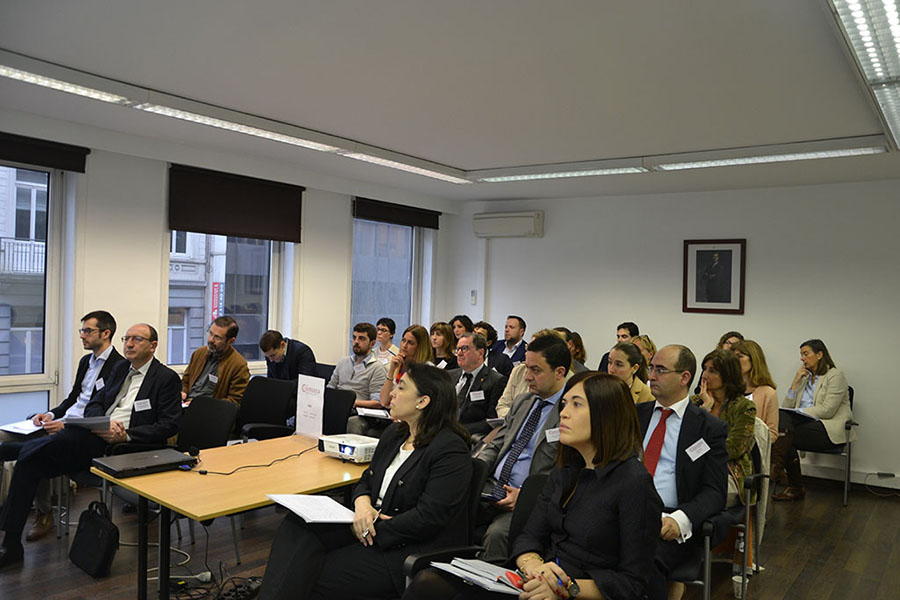
Then, Inmaculada Pineda referred to the situation of tax havens and the rule of “tax quarantine”, according to which the person continues to pay taxes in Spain during the transfer year and the following four years.
Afterwards, the conference focused on the OECD Conventions and, especially, on those established with the aim of avoiding double taxation. These conventions are of great importance because they have primacy over the Spanish domestic regulations.
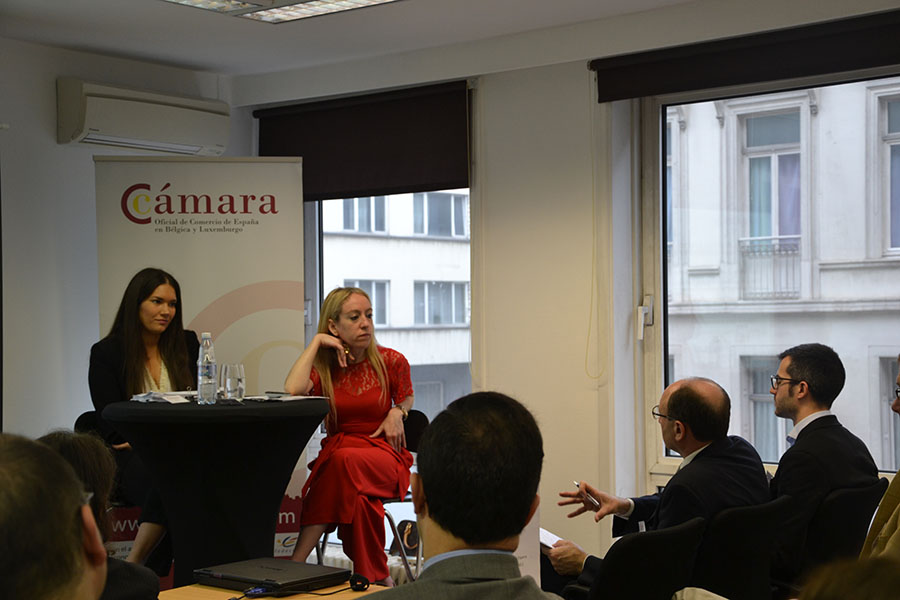 In addition, particular cases were addressed on the maintenance and the change of residence and its related obligations.
In addition, particular cases were addressed on the maintenance and the change of residence and its related obligations.
Then, Pineda explained the tax benefits incorporated in the Spanish regulation. These are mainly developed in the articles 7.p) of the Spanish Income Tax (LIRPF) and 9 of the Spanish Income Tax Regulations (RIRPF). She emphasized the fact that they are incompatible with one another and that it is usually necessary to analyze each case to be able to choose correctly between the two options.
Among the attendees, this situation raised many questions about the various situations in which these exemptions might be eligible. Inmaculada Pineda answered all the raised questions and attended all those who wanted to obtain more information about the various situations previously exposed in the conference.
Definitely, the event organized with our member BLAW & TAX was a great success and helped to understand much better the tax situation in Spain for people who are displaced abroad.


